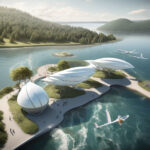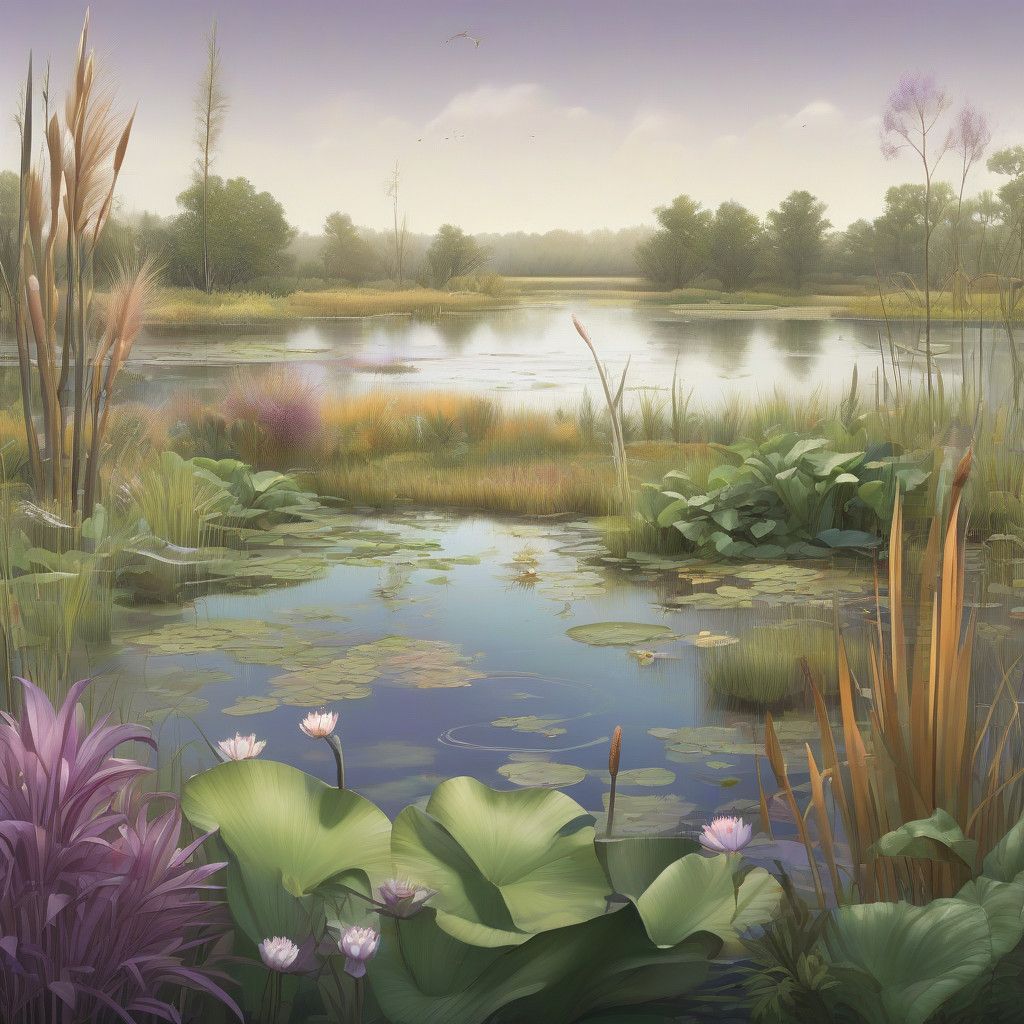The DaWetRest initiative is making strides in revitalizing the Danube River and its surrounding wetlands through innovative methods focused on ecosystem restoration and community involvement. This ambitious project, part of the Lighthouse ‘Danube and the Black Sea’, strives to improve the connectivity between the Danube, its tributaries, and adjacent wetlands, enhancing biodiversity and ensuring the sustainability of these vital ecosystems.
Central to the DaWetRest project is the commitment to uphold the Water Framework Directive, which encompasses various objectives aimed at creating favorable conditions for the biological cycles of natural river inhabitants—ranging from invertebrates to aquatic flora and fauna. The project aims to improve hydromorphological quality, enhance physical and chemical parameters, and reduce pollutants in the water, significantly contributing to overall environmental health.
One of the groundbreaking elements of DaWetRest is the establishment of green hatchery complexes as nature-based solutions. These initiatives are designed to bolster biodiversity, particularly waterfowl populations, aligning with the broader Biodiversity Strategy in the EU. Additionally, the project is developing modern methodologies for freshwater monitoring, facilitating better management and control of these crucial ecosystems as part of the EU Mission to “Restore our Ocean and Waters by 2030”.
The Danube River Basin (DRB), sprawling across 801,463 km² and crossing 19 countries, is a treasure trove of freshwater biodiversity. Unfortunately, extensive anthropogenic activities have diminished this rich resource, resulting in a alarming loss of more than 70% of wetlands and floodplains in the region. The effects of urban expansion, agricultural development, and a lack of effective conservation strategies have led to disconnected river systems and degraded ecosystems, threatening numerous species.
In response, the DaWetRest project operates across three distinct DEMO regions: the Middle Danube, the Lower Danube, and the Danube Delta. These areas provide a compelling backdrop for the implementation of pilot restoration and preservation initiatives that leverage both scientific insight and nature-based solutions. Ten carefully chosen sites serve as testing grounds, engaging local communities and stakeholders to maximize the impact of restoration efforts.
The urgency of restoration cannot be overstated. Wetland ecosystems, when well-maintained, cycle carbon, water, and nutrients, purify water, regulate flows, and provide essential habitats for a vast array of species. The DaWetRest project is addressing the pressing need for restoration by employing a holistic approach, recognizing that adjacent wetlands must be revitalized alongside the river systems to enhance ecological connectivity and synergy.
In tandem with scientific efforts, stakeholder and community engagement is at the forefront of DaWetRest’s strategy. By involving local citizens, academia, public institutions, and SMEs, the project effectively facilitates communication and collaboration, inviting diverse input at every stage of implementation. This approach not only empowers communities but also fosters awareness around the importance of restoring wetlands and the blue economy, which emphasizes sustainable and circular practices in water management.
Recognizing the unique challenges and opportunities presented by different DEMO regions, DaWetRest tailors its solutions based on the local context. This adaptability is vital, as it ensures that methods used can be modified for successful replication in similar areas throughout Europe. The project’s overarching goal is to rebalance the relationship between human activity and nature, paving the way for sustainable, nature-oriented practices while mitigating the negative impacts of climate change.
Looking ahead, DaWetRest acts as a model for future ecological projects, setting a standard for how innovative, ecologically sound practices can benefit both nature and communities. Intelligent monitoring systems and hydraulic models being developed are essential for assessing restoration scenarios and evaluating the potential usage of wetlands to support local economies while enhancing climate resilience.
This collaborative effort includes partnership from various countries, including Bulgaria, Croatia, France, Germany, Greece, Hungary, Moldova, Portugal, Romania, Serbia, Slovakia, and Ukraine, with coordination by the Climate, Atmospheric, and Water Research Institute at the Bulgarian Academy of Sciences.
The work carried out under DaWetRest is not just about restoring wetlands and rivers; it’s about ensuring future generations inherit a thriving ecosystem rich in biodiversity and resilience. As this project unfolds, it serves as a crucial reminder of our collective responsibility to protect and restore the natural world.












